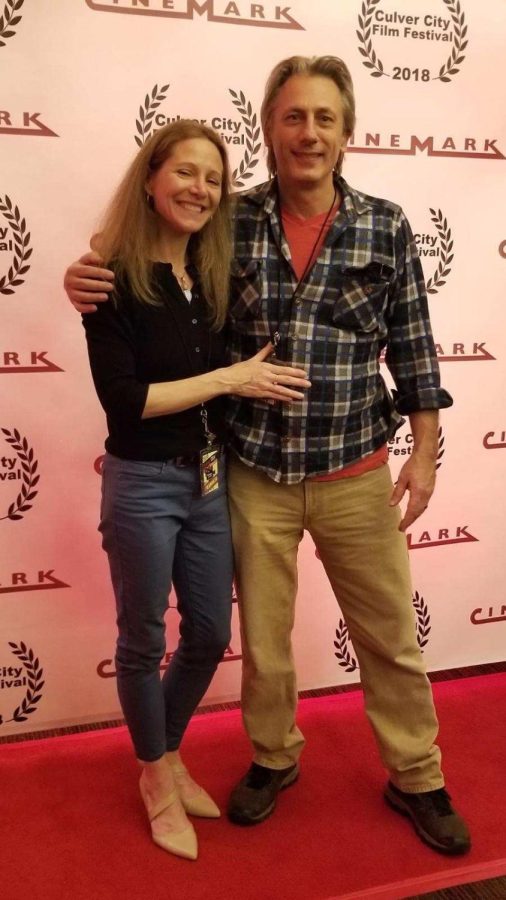Interview with Jury Award winner, professor Dana White
February 10, 2019
The following is an interview with Dana White, an assistant professor at Kent State and a film maker.
KentWired: How did you get started in film and directing?
Dana White: I’ve always kind of written, but I started writing screen plays, and a film that I was acting in brought me to LA. While I was there, I just decided I wanted to start making my own stuff. I didn’t like the idea of always waiting for other people. I needed to have my own voice and my own vision, and I wanted to write my own characters. So, I continued to write and then my husband and I, at the time, decided to take out all kinds of loans and I bought equipment and learned to edit and shoot. Before too long, I was editing for television. I began writing a script and started to make my own little films.
KW: Where did you get your inspiration for your movie “In the Orchard” and other films like your current project Turning Blue?
DW: “In the Orchard” was inspired by a couple things. I tell my students my work always comes from a place that really scares me the most. I’ve always been very interested in the idea of loss, and what it feels to lose everything and to be alone and how people cope with that. (“In the Orchard” is) a story between a woman who just lost her child and husband and she befriends a Vietnam veteran who is dealing with PTSD. I’m in the process of a short film; I’m in pre-production of it which is called Turning Blue.That film is deeply personal. It’s about the last hours of a woman’s life and her daughter being with her; it’s based on a true story. The idea I’ve always been fascinated and terrified by is the idea of death. With this film, I very much tried to deal with the idea of it, the last moments where you realize how final it is and what do you do. I don’t think cinema (shows loss) very well generally speaking; it’s not really real. I felt like I sort of owed it to the memory of my mom and the people who have gone through it.
KW: How does your work outside of Kent overlap into your work as a professor?
DW: I hope it overlaps a lot. I’m trying to foster the newest story tellers and help them find their way. They have a lot of questions. I hope that the work that I do in my professional life carries into the classroom. I know what the students are going through, and I know the process of all of it. And also on another front, I know the industry pretty well so I can help guide them a little bit for what they’re going to face when they get out there.
KW: How do you balance everything in your career?
DW: It’s a challenge. I think I carve out very specific time for myself. I can’t be anything for the students if I can’t be an artist to myself. I’m not done learning or making. I have a lot to make and a lot to do, so if I don’t carve out that time for myself, I don’t have what I need to give to the students. I make sure to carve that time in my schedule.
KW: Anything else you’d like to add?
DW: One of the things I say to my students is don’t expect to get it right. I think the expiration of what we do is the most important thing that we do. There’s no one out there I admire who isn’t always asking questions or a little confused. No one ever thinks they’re doing it right, and they always want to get better. It’s a really unique, personal thing. You can only give students tools to find their voices, and their voices are going to be really different from others and from mine, and that’s the kind of thing that makes what we do really special. The more unique you are, the better it is, and everyone’s unique.
Olivia Herold is a CCI reporter. Contact her at [email protected].

























